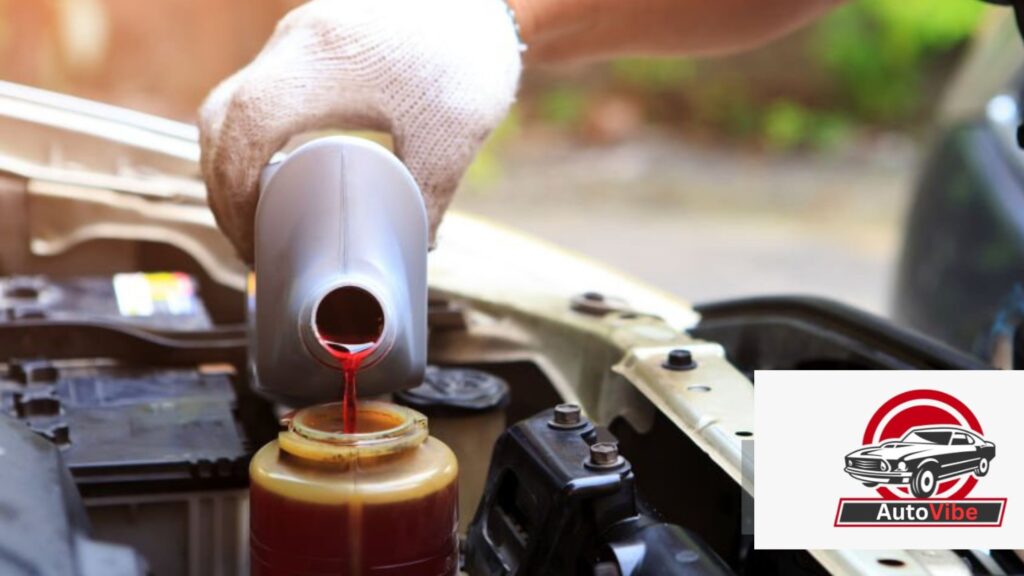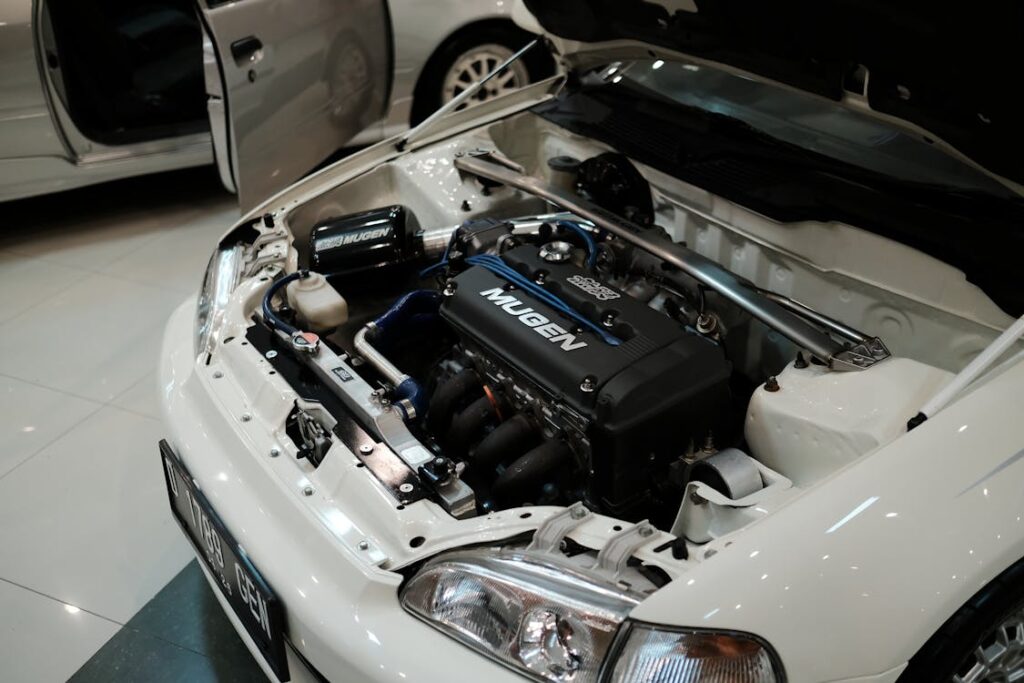
Introduction
Regular automobile maintenance is paramount in ensuring the longevity and reliability of your vehicle. A well-maintained car not only performs better but also offers enhanced safety and fuel efficiency. By dedicating time to proper vehicle care, you can avoid costly repairs and enjoy a smoother driving experience. The investment in routine maintenance pays off in the long run, contributing to the overall health and value of your automobile.
Engine Care and Maintenance
The engine is the heart of your vehicle, and its proper maintenance is essential for optimal performance. Regular oil changes are crucial, as oil acts as the lifeblood of the engine, lubricating its many components and preventing excessive wear and tear. Over time, engine oil can become contaminated with dirt and debris, reducing its effectiveness. Changing the oil according to the manufacturer’s recommended schedule ensures that your engine runs smoothly and efficiently.
Another critical aspect of engine maintenance is checking and replacing the engine air filter. The air filter prevents dust, dirt, and other contaminants from entering the engine. A clogged air filter can restrict airflow, leading to decreased performance and fuel efficiency. Replacing the air filter at regular intervals helps maintain engine power and protects the engine from potential damage.
Tire Maintenance
Tires are the only point of contact between your vehicle and the road, making their maintenance vital for safety and performance. Regular tire rotation and alignment are necessary to ensure even tire wear, which extends the life of your tires and improves handling. Uneven tire wear can lead to poor traction, especially in adverse weather conditions, and may result in the need for premature tire replacement.
Monitoring tire pressure is equally important. Properly inflated tires not only enhance fuel efficiency but also provide better control and braking performance. Under-inflated tires can overheat and increase the risk of a blowout, while over-inflated tires can lead to a harsher ride and uneven wear. Regularly checking tire pressure and keeping it at the recommended level is a simple yet effective way to maintain your vehicle’s safety and efficiency.
Fluid Checks and Replacements

Fluids play a vital role in the proper functioning of your vehicle’s various systems. The coolant, for instance, is essential in regulating the engine’s temperature. Without adequate coolant, your engine could overheat, leading to severe damage. It’s important to check the coolant level regularly and replace it according to the manufacturer’s guidelines to ensure that your engine remains at the optimal temperature.
Brake fluid is another critical component that requires regular attention. It ensures that your brake system operates efficiently, allowing you to stop the vehicle when needed. Over time, brake fluid can absorb moisture, which can reduce its effectiveness and lead to brake system corrosion. Regularly checking and replacing brake fluid is essential to maintain responsive braking and ensure your safety on the road.
Battery Maintenance
The battery is the powerhouse of your vehicle, providing the necessary energy to start the engine and power electrical systems. Over time, battery terminals can accumulate corrosion, which can interfere with the battery’s ability to function properly. Cleaning the terminals regularly can prevent this corrosion and ensure a reliable connection.
It’s also important to recognize the signs that your battery may need replacement. If you notice that your vehicle is slow to start, or if the battery is more than three years old, it may be time to consider a replacement. Keeping your battery in good condition helps avoid the inconvenience of a dead battery and ensures that your vehicle is always ready to go.
Brake System Inspection
Your vehicle’s brake system is crucial for safety, and regular inspections are necessary to keep it in top condition. Brake pads are one of the most important components of the braking system, and they should be checked regularly for wear. Worn brake pads can reduce your ability to stop quickly and can damage other parts of the brake system, leading to costly repairs.
Recognizing the warning signs of brake wear is also essential. If you hear squealing, grinding, or if your vehicle pulls to one side when braking, it’s time to have your brakes inspected by a professional. Addressing brake issues early can prevent accidents and ensure that your vehicle remains safe to drive.
Transmission Care

The transmission is responsible for transferring power from the engine to the wheels, making it a critical component of your vehicle. Checking the transmission fluid levels regularly is essential to ensure smooth gear shifts and prevent transmission damage. Low or dirty transmission fluid can lead to shifting problems and reduce the overall lifespan of the transmission.
In some cases, a transmission flush may be necessary. This process involves replacing the old transmission fluid with fresh fluid, which can help maintain the transmission’s performance and prevent future issues. Consult your vehicle’s manual or a trusted mechanic to determine when a transmission flush is needed.
Lighting and Electrical System
Proper lighting is essential for visibility and safety, especially when driving at night or in adverse weather conditions. Regularly inspect your headlights, brake lights, and turn signals to ensure they are functioning correctly. Replacing burnt-out bulbs promptly helps you see the road clearly and ensures that other drivers can see you as well.
Additionally, it’s important to check the connections in your vehicle’s electrical system, especially the battery connections. Loose or corroded connections can cause electrical issues and affect the performance of various systems in your vehicle. Ensuring that these connections are secure and free of corrosion helps maintain the reliability of your vehicle’s electrical components.
Air Conditioning and Heating System
A well-functioning air conditioning (AC) and heating system is essential for comfort, regardless of the season. Regular maintenance of the AC system, including checking the refrigerant levels and cleaning the AC condenser, ensures that your vehicle remains cool during hot weather. If the AC system is not cooling effectively, it may need servicing to restore its efficiency.
The heating system is equally important, especially during colder months. Regular inspections of the heater core and the cooling system can prevent issues that could leave you without heat on a cold day. Maintaining both the AC and heating systems contributes to a comfortable and enjoyable driving experience year-round.
Windshield and Wipers

Clear visibility is crucial for safe driving, making windshield and wiper maintenance essential. Keeping your windshield clean and free of cracks or chips is important for visibility and structural integrity. If you notice any damage to the windshield, it’s best to have it repaired or replaced promptly to prevent the damage from worsening.
Replacing wiper blades regularly is also key to maintaining clear visibility in rain, snow, or fog. Worn wiper blades can streak or skip, reducing your ability to see the road ahead. Installing new wiper blades ensures that your windshield remains clear, allowing you to drive safely in all weather conditions.
Exterior and Interior Maintenance
The exterior of your vehicle is exposed to various elements, making regular washing and waxing essential to protect the paint and prevent rust. Washing your car removes dirt, salt, and other contaminants that can damage the paint over time. Applying a coat of wax adds a protective layer, helping to preserve the vehicle’s finish and enhance its appearance.
Interior maintenance is equally important for a comfortable driving experience. Regularly cleaning and organizing the interior prevents the buildup of dust, dirt, and debris, creating a pleasant environment for you and your passengers. Using protective mats and seat covers can help preserve the interior’s condition, keeping your vehicle looking and feeling like new.
Conclusion
Consistent automobile maintenance is the key to keeping your car running smoothly and efficiently. By taking the time to care for your vehicle’s various systems, you can prevent costly repairs, extend its lifespan, and enjoy a safer and more comfortable driving experience. Implementing these maintenance tips today will pay off in the long run, ensuring that your vehicle remains reliable and road-ready for years to come.
